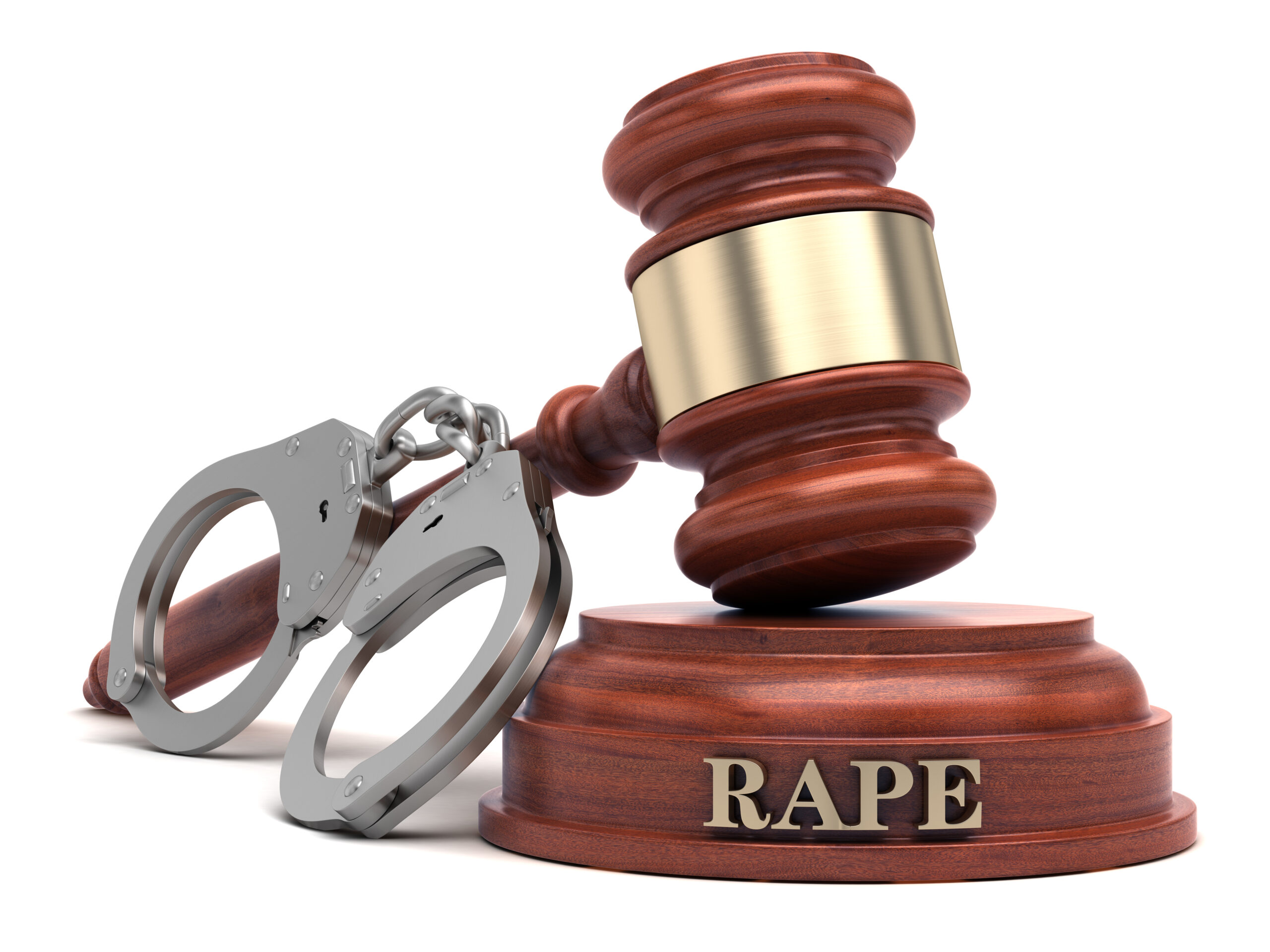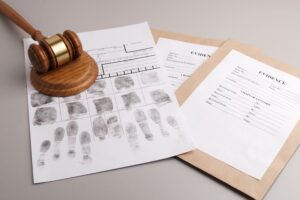How Does a Defense Lawyer Build a Case Against a Rape Charge?

Facing a rape charge is one of the most serious legal challenges a person can endure.
Beyond the potential for severe penalties, these allegations carry a social stigma that can affect every aspect of life. In the justice system, however, the principle of being innocent until proven guilty is paramount. This means the burden of proof lies with the prosecution to establish guilt beyond a reasonable doubt.
A Los Angeles rape defense lawyer’s role in such cases is to protect the rights of the accused, ensuring a fair trial and building a strong defense. By carefully investigating the facts, challenging evidence, and presenting a compelling case, defense attorneys uphold the legal system’s integrity while safeguarding their client’s future.
Understanding the Legal Definition of Rape
Rape laws vary across jurisdictions, but the general definition includes sexual activity without consent, often involving force, coercion, or the inability to give consent due to incapacitation. Understanding the specific elements of a rape charge is critical to formulating a defense.
Key Elements of Rape Charges:
- Lack of Consent: Consent must be explicit and voluntary. Any evidence of consent can play a pivotal role in the defense.
- Force or Coercion: Many laws require the prosecution to prove that the alleged act involved force, threats, or intimidation.
- Evidence of Sexual Activity: Physical evidence, such as DNA or medical reports, is often central to the prosecution’s case.
Defense attorneys must analyze these elements thoroughly to identify weaknesses or inconsistencies in the prosecution’s narrative.
Initial Steps Taken by a Defense Lawyer
When a defense lawyer takes on a rape case, the first step is to gain a comprehensive understanding of the allegations. This involves a meticulous review of all available evidence and discussions with the defendant.
Key Actions in the Early Stages:
- Reviewing the Charges: Understanding the specifics of the allegations, including the timeline, location, and evidence presented by the prosecution.
- Client Interviews: Speaking with the defendant to gather their account of events, potential witnesses, and supporting evidence.
- Collecting Evidence: Requesting police reports, forensic findings, and witness statements for analysis.
By addressing these foundational steps, a defense attorney begins to craft a strategy tailored to the specifics of the case.
Investigating the Case
Thorough investigation is essential for building a robust defense. A defense lawyer will explore every aspect of the case, often employing private investigators or forensic experts to uncover details overlooked by the prosecution.
Areas of Investigation:

- Forensic Evidence: Reviewing DNA reports and chain-of-custody procedures to ensure the evidence was collected and processed correctly.
- Medical Records: Examining medical evidence for inconsistencies or signs that could support a defense argument.
- Witness Testimonies: Identifying and interviewing witnesses who can corroborate the defendant’s account or refute the accuser’s claims.
By uncovering new evidence or challenging existing findings, a defense lawyer can shift the case in favor of the defendant.
Challenging the Prosecution’s Evidence
The prosecution’s case often hinges on physical evidence and the accuser’s testimony. A defense lawyer’s role is to scrutinize and challenge this evidence, ensuring it meets the high standard of proof required for a conviction.
Strategies to Challenge Evidence:
- Questioning Forensic Validity: Highlighting potential errors in the collection, storage, or testing of physical evidence.
- Identifying Inconsistencies: Pointing out contradictions in the accuser’s statements or timelines.
- Evaluating Police Procedures: Demonstrating procedural errors during the investigation, such as improper handling of evidence or biased questioning.
Weakening the prosecution’s evidence is crucial for creating reasonable doubt in the minds of jurors.
Establishing Consent as a Defense
Consent is one of the most common defenses in rape cases. A defense lawyer will gather and present evidence demonstrating that the alleged act was consensual.
Key Evidence to Establish Consent:
- Communications: Text messages, emails, or social media interactions before and after the incident.
- Witness Accounts: Testimony from individuals who observed interactions between the defendant and accuser.
- Behavioral Evidence: Actions that indicate voluntary participation, such as travel plans or shared accommodations.
By presenting credible evidence of consent, a defense attorney can significantly undermine the prosecution’s case.
Identifying and Addressing False Allegations
While rare, false allegations can and do occur, often driven by motives such as revenge, financial gain, or emotional disputes. Defense lawyers are trained to identify and expose these scenarios.
Signs of False Allegations:
- Contradictions in the accuser’s statements over time.
- Lack of physical evidence supporting the claim.
- Evidence of ulterior motives, such as personal disputes or custody battles.
Steps to Address False Allegations:
- Investigating the accuser’s history for prior false claims.
- Demonstrating motives that could lead to fabrication.
- Presenting alternative explanations for the accuser’s actions or statements.
Exposing false allegations not only defends the accused but also upholds the integrity of the justice system.
Examining the Accuser’s Credibility
The accuser’s credibility often plays a central role in rape cases. Defense lawyers will carefully evaluate their background, behavior, and testimony to identify inconsistencies or factors that could undermine their reliability.
Factors That Impact Credibility:
- Prior False Claims: A history of unfounded accusations may indicate a pattern of behavior.
- Inconsistent Testimony: Changes in the accuser’s account of events can cast doubt on their truthfulness.
- Bias or Motive: Personal grievances or financial incentives may affect credibility.
By raising questions about the accuser’s reliability, the defense can create reasonable doubt in the jury’s mind.
Building a Strong Defense Strategy
Crafting a defense strategy involves selecting the best approach based on the case’s specifics. Whether focusing on consent, mistaken identity, or procedural errors, the strategy must be compelling and cohesive.
Steps to Develop a Defense Strategy:
- Reviewing all evidence to identify the strongest arguments.
- Deciding whether the defendant should testify, weighing the risks and benefits.
- Preparing for trial by rehearsing witness cross-examinations and constructing a persuasive narrative.
A well-executed defense strategy is essential for achieving a favorable outcome.
How Cross-Examination Can Shape the Outcome
Cross-examination is a powerful tool in rape cases, allowing the defense to question the accuser and other key witnesses. This stage can significantly influence the jury’s perception of the case.
Objectives of Cross-Examination:
- Highlighting inconsistencies in testimony.
- Revealing potential biases or motives.
- Questioning the accuracy of the accuser’s recollection of events.
Effective cross-examination requires careful preparation and a respectful approach, especially in sensitive cases.
The Role of DNA Evidence in Rape Cases
DNA evidence often plays a central role in rape cases, but its presence alone does not necessarily prove guilt. A defense lawyer will thoroughly examine the collection, handling, and interpretation of DNA to challenge the prosecution’s narrative.
Key Considerations for DNA Evidence:
- Chain of Custody: Ensuring the evidence was collected, stored, and tested according to established protocols. Breaks in the chain of custody can lead to contamination or tampering.
- Context of DNA Presence: DNA evidence may indicate sexual activity but does not automatically prove lack of consent. The defense can argue that the act was consensual.
- Errors in Analysis: Testing procedures are not infallible, and mistakes in lab results or interpretations can occur.
By questioning the reliability and relevance of DNA evidence, a defense attorney can introduce reasonable doubt.
How Digital Evidence Can Support the Defense
In the modern age, digital evidence can be a powerful tool for building a defense. Emails, text messages, social media posts, and location data often provide crucial context for the events in question.
Examples of Useful Digital Evidence:
- Text Messages: Conversations before and after the alleged incident that suggest consent or contradict the accuser’s claims.
- Social Media Posts: Photos, videos, or status updates that reveal the nature of the relationship or the accuser’s actions.
- Location Data: GPS data from phones or apps that can confirm or refute timelines and locations.
Digital evidence can help establish consent, challenge timelines, or reveal inconsistencies in the accuser’s story.
Mistaken Identity as a Defense in Rape Cases

In some rape cases, the defense may argue that the accused was wrongly identified as the perpetrator. Mistaken identity often arises in cases involving strangers or poorly lit environments.
How Mistaken Identity Is Addressed:
- Witness Testimony: Questioning the reliability of the accuser’s identification, particularly under stressful conditions.
- Alibi Evidence: Presenting proof that the defendant was elsewhere during the alleged incident.
- Physical Evidence: Highlighting discrepancies between the defendant’s appearance and the description provided by the accuser.
Mistaken identity is a valid defense that requires careful investigation and evidence collection.
Analyzing the Police Investigation
The quality of the police investigation can significantly influence the outcome of a rape case. A defense lawyer will scrutinize every aspect of the investigation to identify errors or biases.
Potential Issues in Police Investigations:
- Procedural Errors: Failure to follow proper protocols during evidence collection or suspect interviews.
- Bias or Assumptions: Investigators who presume guilt may overlook evidence that supports the defense.
- Inadequate Documentation: Missing reports or incomplete records that weaken the prosecution’s case.
By exposing flaws in the investigation, the defense can undermine the credibility of the case against the accused.
The Importance of Jury Perception in Rape Trials
In rape cases, jury perception can play a critical role in the trial’s outcome. Defense lawyers must carefully present evidence and arguments to ensure the jury understands the complexities of the case.
Strategies to Influence Jury Perception:
- Humanizing the Defendant: Presenting the defendant as a credible and relatable individual to counteract the stigma of the charges.
- Simplifying Complex Evidence: Explaining forensic or technical evidence in clear, understandable terms.
- Focusing on Reasonable Doubt: Emphasizing inconsistencies or weaknesses in the prosecution’s case to create doubt.
Effective communication with the jury is vital for a successful defense.
Cross-Examining Forensic Experts
Forensic experts often testify in rape cases, providing opinions on DNA evidence, injuries, or other physical findings. Cross-examining these experts is essential for challenging the prosecution’s case.
Key Goals of Cross-Examination:
- Questioning Expertise: Highlighting gaps in the expert’s qualifications or experience.
- Challenging Methods: Identifying flaws in the testing or analysis methods used.
- Presenting Alternative Interpretations: Suggesting other explanations for the forensic evidence that align with the defense’s narrative.
By effectively cross-examining experts, a defense lawyer can weaken the impact of forensic testimony.
The Role of Cultural and Societal Bias in Rape Cases
Rape cases often involve biases that can influence investigations, prosecutions, and jury deliberations. Defense lawyers must be prepared to address these biases and ensure a fair trial.
Examples of Biases:
- Gender Bias: Assumptions about the behavior or credibility of the accuser or the defendant based on gender.
- Media Influence: Public opinion shaped by sensationalized media coverage of the case.
- Stereotypes: Preconceived notions about how victims or defendants “should” act.
Defense attorneys can use voir dire, expert witnesses, and strategic arguments to counteract biases and ensure impartiality.
The Psychological Impact of Rape Allegations on Defendants
Rape allegations can have profound psychological effects on defendants, even before a trial begins. Defense lawyers often work to address these challenges while building a case.
Common Psychological Impacts:
- Anxiety and stress due to the seriousness of the charges.
- Social isolation from friends, family, and the community.
- Fear of long-term consequences, such as imprisonment or permanent stigma.
Providing emotional support and guidance can help defendants navigate the legal process and maintain their focus on the case.
Navigating Plea Bargains in Rape Cases
In some cases, the prosecution may offer a plea bargain to resolve the case without going to trial. Defense lawyers must carefully evaluate whether accepting such an offer is in the defendant’s best interest.
Factors to Consider:
- Strength of the Evidence: A plea may be advisable if the prosecution’s case is particularly strong.
- Potential Sentencing: Comparing the penalties associated with a plea versus a conviction at trial.
- Impact on Future Opportunities: Evaluating how the plea agreement will affect the defendant’s record and life.
While plea bargains can provide a quicker resolution, they must be approached with caution to avoid unnecessary consequences.
The Role of Character Witnesses in Rape Defense
Character witnesses can provide valuable testimony about the defendant’s behavior, personality, and relationships, helping to counter the prosecution’s portrayal.
Examples of Helpful Character Witnesses:
- Friends or family members who can attest to the defendant’s integrity.
- Employers or colleagues who can vouch for the defendant’s professionalism.
- Community members who can speak to the defendant’s contributions or reputation.
Using character witnesses effectively can humanize the defendant and strengthen the defense’s case.
Protecting the Accused While Upholding Justice

Ambrosio E. Rodriguez, Los Angeles Rape Defense Lawyer
Rape charges are among the most serious in the legal system, requiring a nuanced and strategic defense. A defense lawyer’s role is to ensure that every piece of evidence is examined, every testimony scrutinized, and every argument explored to protect the rights of the accused.
If you or a loved one is facing a rape charge, legal representation is critical. Consulting an experienced defense attorney early in the process can make all the difference in building a strong case and securing the best possible outcome.
To discuss your case, give us a call at (213) 995-6767.


